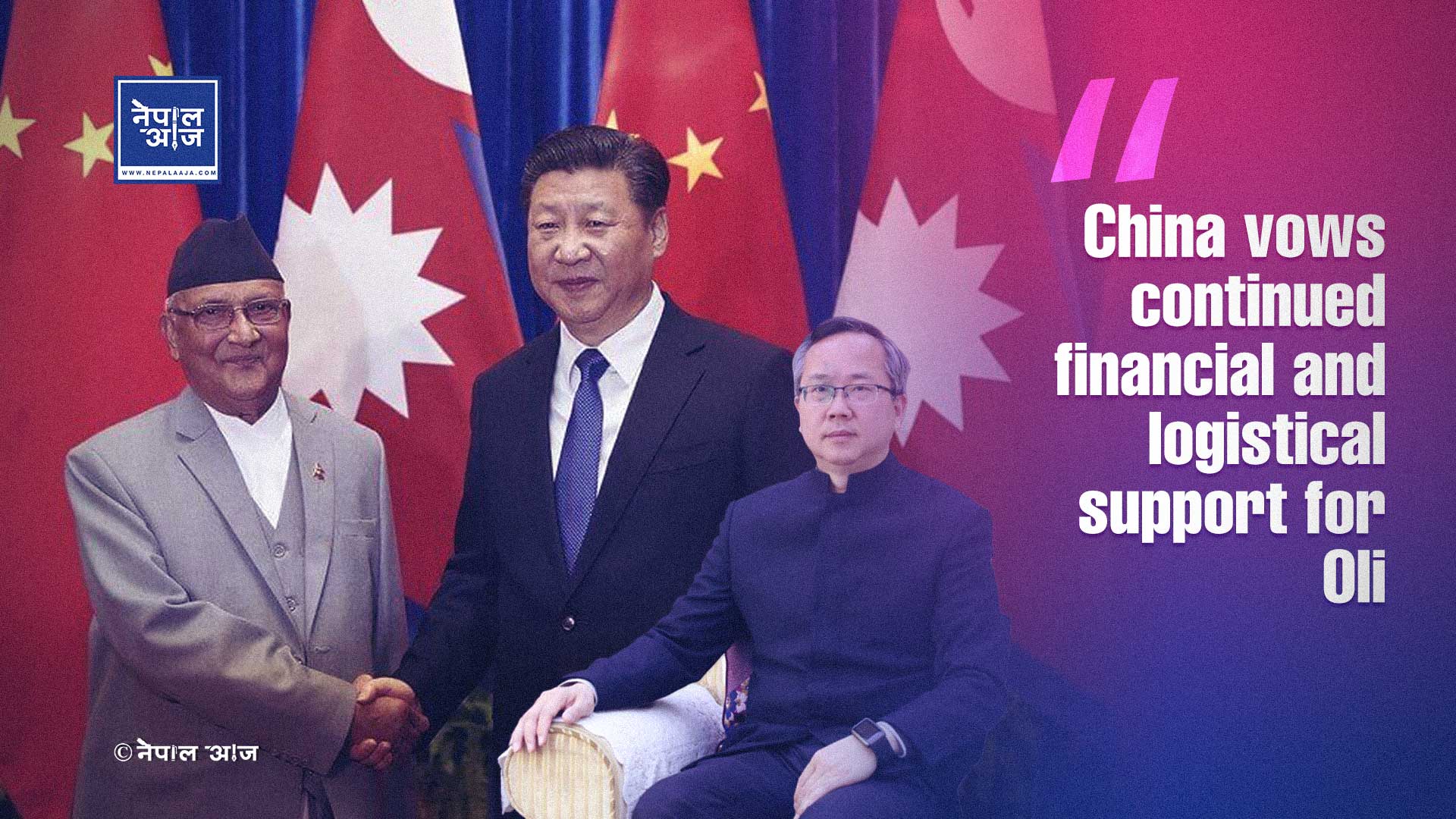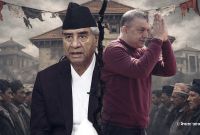Chinese Communist Funds Fuel Oli’s Party as Beijing’s “Shadow Government” Expands in Nepal

As former Prime Minister K.P. Sharma Oli and his close ally Mahesh Basnet continue to brand Nepal’s Gen-Z movement as a “foreign conspiracy,” their own party — the Communist Party of Nepal (Unified Marxist–Leninist), commonly known as CPN-UML — has once again landed in controversy for its growing financial, political, and strategic ties with the Chinese Communist Party (CCP).
According to multiple diplomatic sources, China has been providing the UML and its local networks with consistent political, material, and financial assistance for years — without the formal knowledge or consent of the Government of Nepal. This parallel support system, operating outside official state mechanisms, has deepened concerns over foreign interference in Nepal’s domestic governance and sovereignty.
Reliable information indicates that the CCP has established a direct operational channel with the UML, through which training programs, equipment, exposure visits, and logistical aid are routinely delivered. What began under the banner of “party-to-party friendship and ideological exchange” has now evolved into a network of funding and influence, stretching from Kathmandu to remote Himalayan border regions. In districts such as Humla, Mugu, Mustang, and Olangchung Gola, China is reported to have provided direct financial and infrastructural support to local governments, community clubs, and households — none of which are documented in government records or parliamentary reports.
A senior Nepali diplomat, speaking on condition of anonymity, told Nepal Aaja, “Any form of direct assistance without state approval is a blatant intrusion into sovereign oversight. This is not just aid; it’s a long-term strategy to establish influence.” The diplomat added that China’s growing presence in Nepal’s border areas is “no longer limited to infrastructure — it is now embedded in ideology, propaganda, and power.”
Meanwhile, Chinese Ambassador Chen Song, in a recent closed-door political meeting in Kathmandu, reportedly reaffirmed the CCP’s commitment to continued support for the UML, framing it as part of China’s long-term contribution to “Nepal’s development and stability.” He also signaled that China intends to deepen its collaboration with the UML through the Belt and Road Initiative (BRI), the Global Development Initiative (GDI), and the Global Security Initiative (GSI) — three major pillars of Beijing’s global strategy.
With these assurances, the UML has effectively become Nepal’s largest political organization backed by Chinese support. However, sources confirm that such aid is not unconditional: in return, the UML leadership is expected to publicly advocate for China’s global initiatives and narratives. Some dissenting party members, requesting anonymity, revealed that “statements supporting BRI, GDI, and GSI are drafted by the central office and circulated to all provincial and local chapters to ensure unified messaging.”
The irony, analysts note, is stark: while Oli and Basnet accuse the Gen-Z protesters of being influenced by foreign actors, their own party has become a policy laboratory for external powers. Diplomatic circles describe the UML’s current operations as being driven by the CCP’s model of “sharp power” — a blend of ideological persuasion, media propaganda, and financial leverage designed to shape political behavior in target countries.
The Government of Nepal has yet to issue any official response. A senior official at the Ministry of Foreign Affairs acknowledged, “We have no record of any direct Chinese assistance or partnership of this nature. If such cooperation is taking place at the local level, it falls outside the formal state process.” The Chinese Embassy in Kathmandu has declined to comment.
Political observers warn that if this unmonitored support network continues, China’s influence could become institutionalized within Nepal’s policy-making system, blurring the line between partnership and dependency. What began in the name of “development and stability” now risks evolving into ideological control over national decision-making.
And so, Nepal faces a defining question: Will its politics remain guided by its own citizens, or be scripted by foreign powers? For as history shows — a government propped up by foreign money can never truly stand on its own.




![From Kathmandu to the World: How Excel Students Are Winning Big [Admission Open]](https://nepalaaja.com/img/70194/medium/excel-college-info-eng-nep-2342.jpg)
